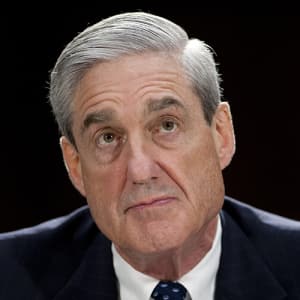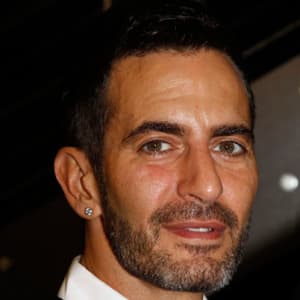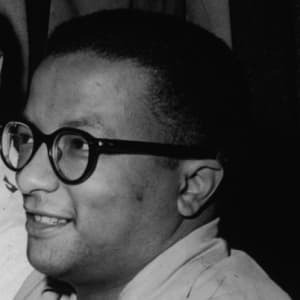
Robert Mueller
Robert Mueller served as director of the FBI from 2001 to 2013. In 2017, he was named special counsel to investigate Russian interference into the 2016 presidential election.
Who Is Robert Mueller?
Born in New York City in 1944, Robert Mueller attended Princeton University and served with distinction in Vietnam. He became an assistant U.S. attorney for the
Northern District of California in 1976, and over the next two-plus decades he also took on prominent roles with the District of Massachusetts and the Department of
Justice. Named FBI director in 2001, Mueller was immediately confronted by the 9/11 attacks, and he subsequently overhauled the bureau to meet the demands
posed by 21st century terrorist activity. He left the post in 2013, but returned to the spotlight four years later as special counsel in charge of investigating Russian interference into the 2016 presidential election and possible ties
to associates of President Donald Trump.
Early Life
Robert Swan Mueller III was born on August 7, 1944, in New York City, and grew up outside of Philadelphia. He attended the prestigious St. Paul's school in New
Hampshire, where he captained the soccer, lacrosse and hockey teams, the latter alongside future Secretary of State John Kerry.
Mueller followed his father to Princeton, graduating with a bachelor's in politics in 1966, and earned his master's in international relations from New York University
the following year. He then served with distinction in Vietnam, receiving the Bronze Star, two Navy Commendation Medals, the Purple Heart and the Vietnamese Cross of
Gallantry as an officer in the Marine Corps. Returning stateside, he resumed his education at the University of Virginia Law School, serving on the Law Review and
earning his J.D. in 1973.
Criminal Justice
Unable to achieve his initial goal of a position with the United States Attorney's office, Mueller joined the San Francisco firm of Pillsbury, Madison & Sutro out of
law school. He fulfilled that goal by becoming assistant U.S. attorney for the District of Northern California in 1976, rising to chief of its criminal division in
1981. Mueller then became assistant U.S. attorney for the District of Massachusetts in 1982, and served as the district's acting attorney from 1986 to
'87.
Following a year at the Boston firm of Hill and Barlow, Mueller joined the U.S. Department of Justice in 1989 to spearhead the prosecution of Panamanian dictator
Manuel Noriega. He took charge of the DOJ's criminal division in 1990, where he oversaw the Lockerbie bombing case and formed the agency's first cyber-dedicated unit.
Mueller returned to private practice in 1993 as a partner at Hale and Dorr (later known as WilmerHale). However, unable to get prosecution out of his blood, he took on
a lower-level job in the homicide division of the U.S. Attorney's Office for the District of Columbia in 1995, soon rising to the post of homicide chief. He resumed a more orthodox career path as U.S. attorney for the Northern District of California from 1998 to early 2001, before serving as acting deputy attorney general for
the new George W. Bush administration.
FBI Director
In July 2001, President Bush nominated Mueller to replace outgoing FBI Director Louis Freeh. Unanimously approved by the Senate, Mueller officially took his post as
the sixth FBI director on September 4, 2001, just one week before the September 11 terrorist attacks.
In the following months, Mueller acknowledged that the attacks might have been prevented had FBI headquarters followed through on tips from field offices. He then set
about dramatically reorganizing the bureau, uprooting its domestic crime-fighting culture to install a high-tech global operation designed to head off terrorist
threats.
The director pressed for expanded surveillance powers, but he also nearly quit over what he viewed as abuse of that power. In 2004, after Attorney General John
Ashcroft was hospitalized, Bush administration officials attempted to override acting Attorney General James Comey to gain an extension for an illegal wiretapping
program. Mueller, Ashcroft and Comey all intended to resign, before cooling down when a compromise was reached.
Lauded for his success in modernizing the FBI, Mueller in 2011 accepted President Barack Obama's offer to remain an additional two years in his post, and
again was confirmed unanimously by the Senate. However, shortly before the conclusion of his extension, the FBI faced another terrorist event with the Boston marathon
bombings on April 15, 2013. Mueller revealed that the FBI had previously investigated the older of the two brothers involved in the bombings, though the bureau was unable
to make an arrest in part due to a lack of cooperation from Russians to provide evidence.
After stepping down as the FBI's longest-serving director since J. Edgar Hoover, Mueller accepted a teaching post at Stanford and rejoined his old firm of WilmerHale. He took on some of the firm's most important cases, including an investigation into the NFL's controversial suspension of player Ray Rice over domestic abuse charges.
Special Counsel for Russia Investigation
The longtime prosecutor returned to the spotlight on May 17, 2017, when he was named special counsel to oversee the investigation into Russian interference into the 2016 presidential election and possible ties to associates of President Donald Trump. Mueller's appointment drew praise from both sides of the aisle.
On October 27, 2017, a federal grand jury approved the first charges in Mueller's investigation. On October 30, former Trump campaign chairman Paul Manafort and his associate Rick Gates were indicted on a series of charges, including tax fraud, money laundering and foreign lobbying violations. The day also brought news that George Papadopoulos, a former foreign policy adviser to the Trump campaign, had pleaded guilty to lying to the FBI about the campaign's contact with Russians.
The revelations revived talk of Trump potentially cutting Mueller's budget, or even firing the special counsel, but several White House aides and prominent Republicans rejected that idea. "The legal process is working. Just let it work," said South Carolina Senator Lindsey Graham. "Let Mueller do his job. If he gets off in a ditch and he does something he shouldn't be doing, then we'll all comment on it when that happens."
In early November, news surfaced that Mueller's team had also gathered enough evidence to bring charges against former National Security Adviser Michael Flynn and his son. According to reports, investigators had been examining Flynn's lobbying work, as well as his involvement in attempts to arrange the removal of an opponent of Turkish President Recep Erdogan from his home in the U.S. and send him back to Turkey.
Shortly afterward, a report in the Wall Street Journal revealed that Mueller had issued subpoenas to more than a dozen officials from the Trump campaign team, a move that caught them off guard. None of those who received the subpoena were compelled to testify before a grand jury.
Flynn Plea Deal and Increased Pressure
On December 1, 2017, Michael Flynn pleaded guilty to lying to the FBI about conversations with the Russian ambassador before Trump formally took office. Additionally, it was revealed that Flynn was acting under the instructions of a “very senior member” of the presidential transition team.
However, as Mueller seemingly drew closer to Trump's inner circle, he faced increased pressure over accusations that the investigation was biased. Shortly after Flynn's plea deal, news surfaced that two FBI agents assigned to the probe had shared text messages in which they mocked and insulted Trump.
The texts, which were made available to lawmakers on December 12, prompted calls for Mueller to either revamp his investigative team or to step down. Four days letter, a Trump lawyer accused the investigation of illegally obtaining and using emails generated by the presidential transition team. The heightened tension fueled speculation that Trump would soon find a way to have Mueller dismissed, though the president's spokespeople remained publicly committed to cooperating with the probe.
More complications arose in early January 2018, when Manafort filed a lawsuit alleging that the Mueller probe had overstepped bounds by charging him for conduct unrelated to Russian interference in the 2016 presidential election.
Breaching the White House
With the start of the new year, Mueller seemed to be zeroing in on the White House. In mid-January, his investigators interviewed Attorney General Jeff Sessions, the first member of Trump's Cabinet to submit to questioning.
On January 23, The Washington Post reported that Mueller was aiming to sit down with the president in the coming weeks to inquire about his decisions to dismiss Flynn and Comey. Trump subsequently expressed his willingness to meet with the special counsel to clear his name. "I’m looking forward to it, actually," he said.
Two days later, another report revealed that Trump had sought to have Mueller fired the previous June, before backing off when White House Counsel Donald F. McGahn threatened to resign in protest. As a result, Democratic leaders revived demands for Congress to pass legislation to protect Mueller and future special counsels from being fired by the president.
Russian Indictment
On February 16, 2018, the Justice Department announced that Mueller had indicted 13 Russian nationals and three Russian entities for interfering in the 2016 presidential election, charging them with conspiracy to defraud the United States. According to the indictment, the defendants allegedly created false U.S. personas and operated social media pages and groups to attract American audiences in a "strategic goal to sow discord in the U.S. political system."
The indictment was also notable for a lack of allegations that any American knowingly participated in the Russian conspiracy, an outcome that President Trump viewed as a sign of vindication. The White House subsequently released a statement that said the president was "glad to see the special counsel's investigation further indicates— that there was NO COLLUSION between the Trump campaign and Russia and that the outcome of the election was not changed or affected."
In March, reports surfaced of Mueller gathering evidence to show that a meeting in Seychelles shortly before the inauguration of Donald Trump was part of an effort to establish a back channel with Russia. The meeting, between a private security company founder named Erik Prince and a Russian official, supposedly was a chance encounter, according to Prince. However, a businessman cooperating with the special counsel investigation contradicted that claim in testimony before a grand jury, saying the meeting was deliberately set up to forge a line of communication with the Kremlin.
Around that time, Muller subpoenaed the Trump Organization to turn over documents, some of which pertained to Russia. It was speculated that the subpoena was part of a broadening inquiry into the possible use of foreign money to fund Trump's political interests.
First Sentencing
On April 3, 2018, Dutch attorney Alex van der Zwaan became the first person to face punishment from the special counsel's probe, drawing a 30-day prison sentence and a $20,000 fine. Van der Zwaan had lied to investigators about his contacts with Gates and another individual with ties to Russian intelligence.
Meanwhile, Mueller informed Trump's attorneys that the president was not considered a criminal target, though he continued pursuing an interview. Mueller's investigators were said to be considering issuing reports on their findings in stages, with the first to be focused on Trump's actions in office and whether he attempted to obstruct justice.
After the FBI executed search warrants on the Manhattan office and hotel room of Trump attorney Michael Cohen on April 9, following what was believed to be a referral from the special counsel's team, the president was said to be considering firing Deputy Attorney General Rod Rosenstein, who appointed Mueller to his post.
Around that time, The New York Times reported that the president had intended to shut down Mueller's investigation back in December 2017, before learning that reports of a new round of subpoenas were inaccurate. The news again rattled members of Congress, prompting a bi-partisan group of senators to cobble together legislation that would give any special counsel a 10-day window in which he or she could seek expedited judicial review of a dismissal.
Later that month, The Times obtained and published a list of questions submitted to Trump's legal team that Mueller hoped to have answered in an interview. The approximately four dozen questions covered an array of topics, including the high-profile firings of Comey and Flynn; the infamous June 2016 Trump Tower meeting with a Russian lawyer who promised "dirt" on Hillary Clinton; Trump's interactions with Sessions, Manafort and Cohen; and even the president's reported attempts to have the special counsel fired.
The publication of the questions enraged Trump, who supposedly was already souring on the idea of cooperating for an interview. It was subsequently reported that Mueller had raised the possibility of a subpoena, setting up a potential high-stakes showdown with the president's legal team.
In June, Mueller's team brought more charges against Manafort, claiming that the former Trump campaign honcho was attempting to tamper with witness testimony. However, a judge also ordered concessions on the defendant's behalf, telling the special counsel's office that they needed to release names of the unidentified individuals who allegedly acted as unregistered foreign agents on behalf of Manafort.
Later in the month, Mueller issued a grand jury subpoena to a man named Andrew Miller, who worked for longtime Trump adviser Roger Stone during the 2016 presidential campaign. It marked the third associate of Stone's to be called before a grand jury, suggesting that the special counsel had a particular interest in examining the Stone-Trump relationship. A lawyer for Miller said he would contest the subpoena on the grounds that Mueller's appointment was illegitimate, though a federal judge ultimately rejected that challenge in early August.



